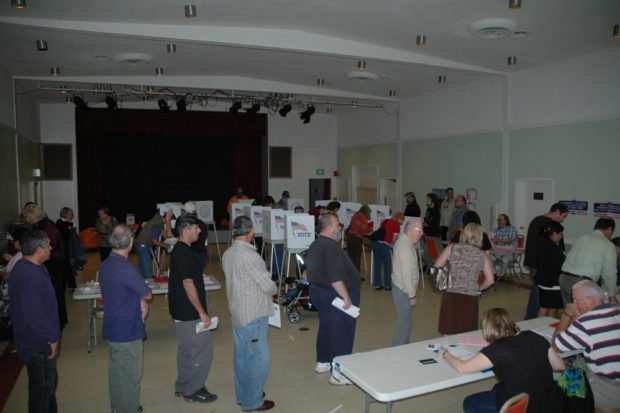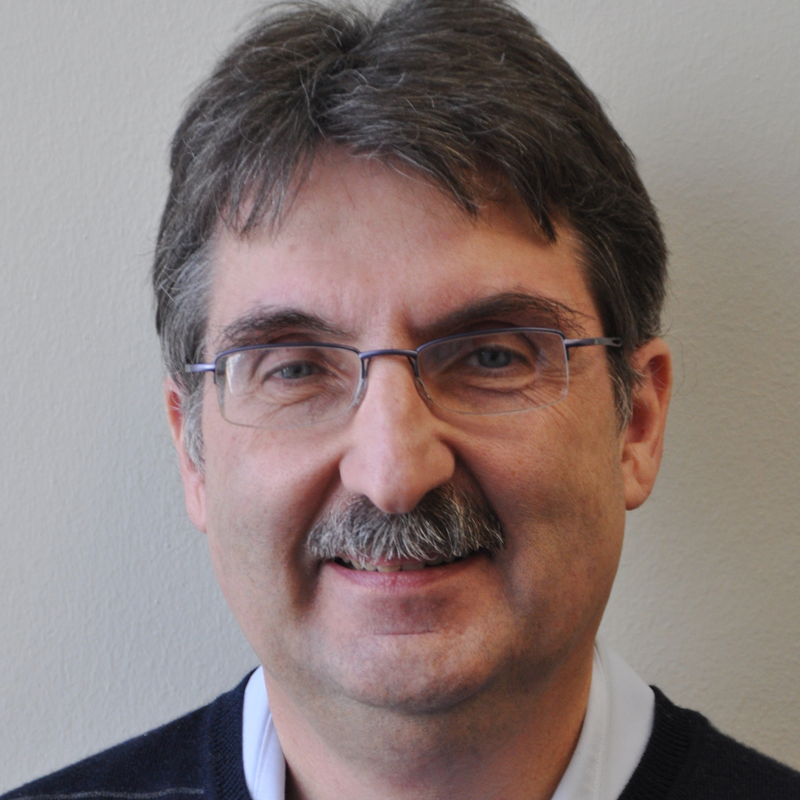
The national narrative for the 2010 election is that President Barack Obama pushed his “left” agenda too aggressively and the people rebelled. Who makes up this stuff?
Far from governing from the left, Obama firmly grounded himself in the center with a support staff of tried and proven insiders. His seeming refusal to pursue the “change” that he had so eloquently outlined in his campaign for the presidency demoralized the Democratic base and alienated the first-time voters who had become so energized in 2008.
One could argue that the real reasons for the 2010 debacle were the slow pace of real change, the failure of Obama to aggressively pursue the agenda for which he was elected and his administration’s inability to control the messaging of any aspect of that agenda.
Obama may be embarrassed, but it is the American people who will suffer.
On paper, the electoral results appeared to improve once you crossed the Rocky Mountains. Tea Party favorite Sharron Angle, whose one positive attribute was that she was not the “chicken lady” she had defeated in the primary, fell short in her bid to defeat Senate Majority Leader Harry Reid in Nevada. Curiously, we saw that Obama’s magic could still work as he had a crowd of thousands actually screaming enthusiastically for the somewhat dull Reid.
In California, Democrats appear to have swept the statewide offices. (Democrat Kamala Harris held a 51,000-vote lead in the attorney general race as of this writing, but numerous provisional ballots were still to be counted statewide.) Equally important, Prop 25 passed giving the legislature the capability to pass a budget with a simple majority vote, providing some breathing room for state legislators. That’s one less hassle that Jerry Brown will have to face as governor.
Given the current economic debacle that faces our state, Brown might well be the best person to direct us out of our hole. He is well known for his frugality, and there are few people in the state who understand our government better than he. Sitting in the wings will be Gavin Newsome, the progressive San Francisco mayor who was elected lieutenant governor.
The person we really need working for the people at this time is Secretary of State Debra Bowen. We need to get a better grasp on voter registration and voter integrity issues in this state. We must make it easier to register to vote, prosecute those who practice voter fraud (e.g., tricking people into switching their registration) and voter intimidation, ensure that everyone has easy access to cast a ballot (unlike this year’s fiasco in Fresno County) and demand that every vote is counted.
One disappointment regionally (well, for most of the state actually) was Democrat Chris Parker’s loss in the race for the Board of Equalization District 2 seat. Parker is a responsible progressive who ran a truly grassroots campaign. With all of the Central Valley in his district, however, it wasn’t the best year for a Democrat in that race.
At the Congressional level, Democrat Dennis Cardoza easily won reelection whereas Democrats Jim Costa and Jerry McNerny appear to have won reelection in considerably closer races. Costa won Fresno and Kern counties handily but was annihilated in Kings County, which had 54.7 percent turnout. In District 19, Republican Jeff Denham was elected to replace the retiring George Radanovich, whereas Republican Devin Nunes was elected without opposition in District 21.
For the state legislature, there will be new faces for every district that crosses into the county. Democrat Michael Rubio was elected to follow Dean Florez to the State Senate, whereas Republican Tom Berryhill was elected to replace Dave Cogdill. Democrat Henry T. Perea will replace independent Juan Arambula in Assembly District 31, whereas Republicans Linda Halderman and David Valadao will represent Assembly Districts 29 and 30, respectively.
In the county races, Republican Paul Dictos defeated Democrat Carole Laval for Assessor/Recorder. And City Council Representative Cynthia Sterling was unsuccessful in her bid to move up to the Board of Supervisors in District 1. However, the issues around possible voter disenfranchisement in Fresno County (see sidebar) could end up in the courts and affect the outcome of those races. Both Laval and Sterling had been endorsed by the Central Valley Progressive Political Action Committee (CVP-PAC).
On the Fresno City Council, there will be three new faces. Democrat Oliver Baines was newly elected in District 3 as was Democrat Sal Quintero in District 5. Baines was also endorsed by the CVP-PAC. Quintero previously served on the City Council. He defeated Louise Bauer Davoli, who had received the CVP-PAC endorsement in that race. Republican Clint Olivier was elected in District 7 in the primary, and Blong Xiong was reelected in District 1 in the primary.
So what does all this mean?
At the national level, we are facing two years of gridlock, numerous irresponsible Congressional hearings, a continuation of the lies and distortions that have permeated our society for the past two years and next to nothing getting accomplished. It will be interesting to see whether the newly elected Tea Party adherents insist on going their own way or follow in lockstep with their more organized Republican brethren. On the Democratic side, will President Obama pursue a path for his reelection or continue his misguided strategy of compromise (i.e., giving in to right-wing demands). And more important for the long-term survival of the party, can the Democratic wing of the party wrest control from the powerful Goldman Sachs wing of the party?
At the state level, there is hope for positive change. The budget crisis is not going away, but there is now a tool with which to start managing it. And we have an actual leader in Sacramento.
At the county level, the outlook is grim. Conservatives maintain a solid working majority on the Board of Supervisors, and we can expect the continued weakening and dismantling of county services. Panic over budget issues will likely be used to rationalize the elimination of some good programs.
At the city level, the outlook is somewhat mixed. Baines and perhaps even Olivier, if one is to believe his campaign rhetoric, could bring a fresh perspective to the body. Quintero knows how the body works and could assist the newbies in navigating the structural maze. The question marks will be Xiong and Olivier and their commitment to moving our community forward.
Looking ahead, we need to reflect on what happened in 2010 and employ our lessons learned to be more effective in the years ahead. The right (Tea Party and Republican) held tight to the mantra of “Let’s take our country back.” Of course, that is an unfinished sentence. What they really mean is “Let’s take our country back to a period in our history that only existed on black-and-white television in the 1950s.”
Our response must be to take back our democracy. And to do that, we must address four issues:
Getting money out of the electoral process
Making it easier to register to vote
Ensuring that every vote cast is actually counted
Stopping the lies
What we must not do, what we cannot do, is sit on the sidelines.

Voter Disenfranchisement
Less than a month before the 2010 election, Fresno County Registrar of Voters Victor Salazar made it known that the number of polling sites in Fresno would be reduced by almost 50 percent because of budgetary and staffing reductions in his office. The announcement was made with little fanfare and no plan for dealing with the voter disenfranchisement that would be inevitable as a result of this decision.
On October 19, two press conferences were held outside the Fresno County Hall of Records to demand that the Board of Supervisors reverse the Registrar’s decision. (The Board controls the budget of the Registrar’s office.) Speakers at the press conference contended that Salazar’s decision 1) had violated the California Election Code, 2) would not save the county money, 3) would unnecessarily confuse and discourage voters from casting their ballots and 4) would overburden polling sites, potentially resulting in long lines and decreased voter participation.
“As citizens, voting is one of our most important rights and responsibilities,” stated Venancio Gaona, representative of El Concilio de Fresno. “After so many more people, especially young people, voted in the 2008 election, the County should be taking steps to encourage that even more of our residents vote and not be using any means to discourage them.”
These fixes included the following:
- Opening 20 polling sites on the Saturday before Election Day.
- Mailing a postcard to voters as a reminder of polling site changes.
- Placing signage at the closed polling sites with a toll-free number to call to be redirected to one’s new polling site.
These measures were supplemented by community efforts to educate voters on where and when they could vote, place additional signage with specific information (the Registrar provided signage was generic) at the closed polling sites, staff closed polling sites to redirect voters to their new voting locations and provide rides to the polls.
Despite all these efforts, there was still much evidence of voters being confused and discouraged on Election Day. Many who had been designated as “forced vote by mail” voters were unaware of the change and unfamiliar with the process. Long lines were common. And, apparently, some areas even had incorrect or incomplete ballots. As of press time, a legal challenge regarding the disenfranchisement seemed likely.
“The rationale given for this shortsighted and unprecedented decision was cost saving,” says Michael D. Evans, chair of the Fresno County Democratic Central Committee. “But we must ask ourselves: Are we really ready to throw in the towel and just say, ‘We can no longer afford democracy?’ I think not.”

